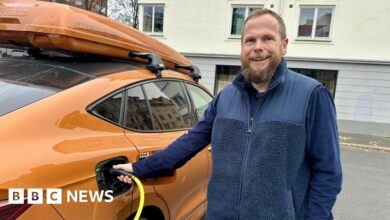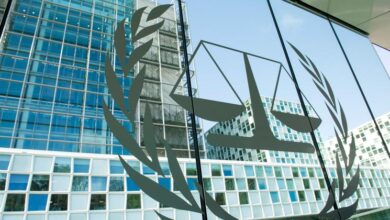‘Help and Hope’, an airborne lifeline for the world’s most isolated people

The World Food ProgrammeCindy McCain, CEO, said United Nations Humanitarian Air Service (UNHAS), managed by the UN food agency, helps humanitarian organizations respond rapidly to crises in the “deep field”.

WFP Executive Director Cindy McCain inspects the devastation caused by El Niño-induced drought in Zambia.
Cindy McCain and Franklyn Frimpong, UNHAS director of aviation, discussed the importance of this lifesaving service.
Cindy McCain: UNHAS enables WFP and other agencies to function. UNHAS enables us to reach remote areas and parts of the world that would otherwise be inaccessible, and to deliver goods and transport people wherever they need to go. I don’t think WFP would be complete without UNHAS. And that’s something that not only we value; I know other agencies value it as well. When people see a UNHAS plane landing, they know help has arrived. That’s what we do: deliver help and deliver hope.

A UNHAS plane flies over cyclone-ravaged eastern Madagascar. (file)
Franklyn Frimpong: UNHAS has been at the forefront of many humanitarian emergencies since its inception 20 years ago. Examples that are readily apparent are: Ebola disease outbreak in West Africa and COVID-19 pandemics cause health emergencies, natural disasters like tsunamis, and then the many crises and conflicts-driven emergencies we face today.
Today, we serve over 600 organizations, making UNHAS a key support player in some of these complex humanitarian operations.

Food aid is delivered to the villagers of Madjoari, Burkina Faso.
Cindy McCain: It is also important to remember that the overall work of WFP and other UN agencies is to bring stability to regions. That is a very important part of UNHAS: our ability to support stability and make sure that communities, and the world, understand the importance of a stable state: not just stable communities but also stable governments.
Franklyn Frimpong: But UNHAS and WFP cannot do this alone. It requires cooperation and collaboration with stakeholders such as governments, the donor community, UN sister agencies and other aid agencies to truly achieve the desired response to complex humanitarian emergencies.

UNHAS crew members pose outside a plane at Qamishli airport in northeastern Syria.
UNHAS’s success is fundamentally about collaboration. Indeed, UNHAS is a testament to what can be achieved when organizations share a common vision.
Cindy McCain: I hope that UNHAS will have new growth and capabilities for science and technology when it comes to aviation. That is very important, especially when we are talking about trying to meet global demand, which is what we do.
I think the ability to continue to ensure that we can fly safely, remain neutral and be part of a global strategy that does good rather than harm is a big part of what UNHAS does.
Info box:
- UNHAS serves multiple destinations through 17 operations globally, connecting 20 countries.
- Managed by WFP, UNHAS provides passenger and light cargo transport services for the humanitarian community to and from hard-to-reach crisis areas.
- In 2023, WFP airlifts delivered some 11,500 tonnes of food and aid to more than half a million people in isolated towns across Burkina Faso.
- UNHAS’s work in Burkina Faso receives significant support from the European Union, Luxembourg, Switzerland and the United States.




